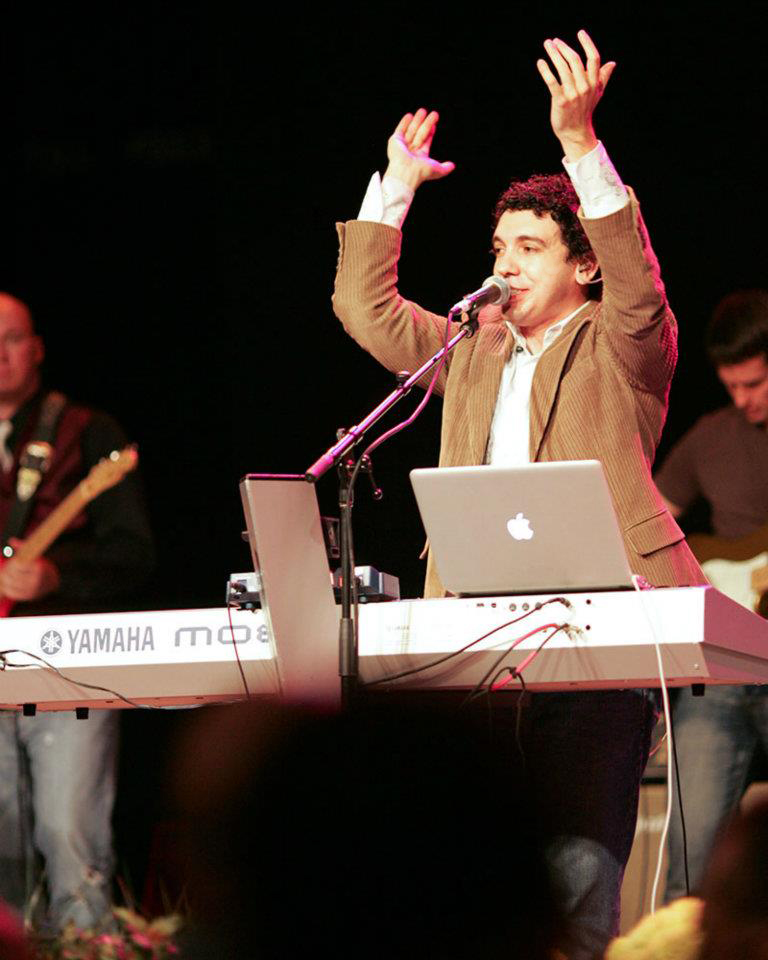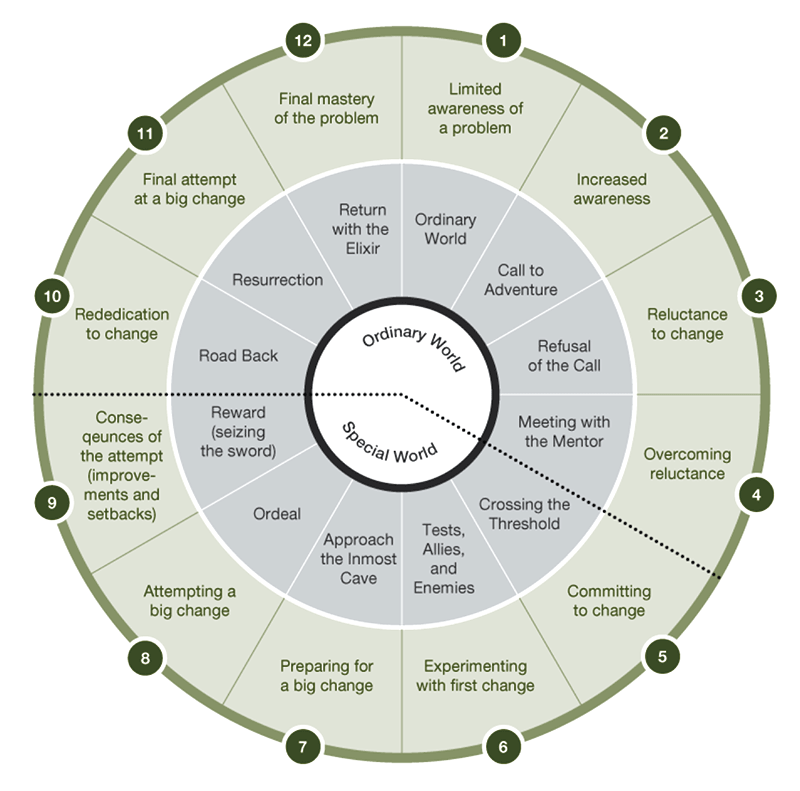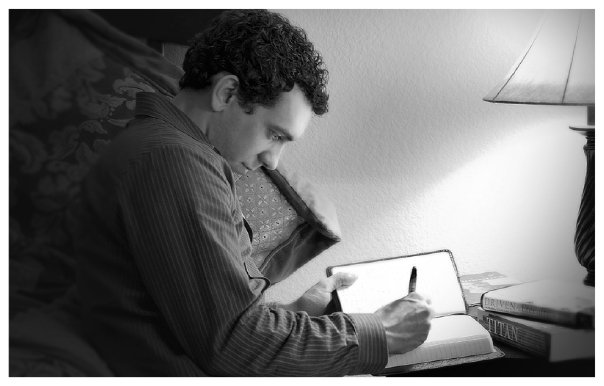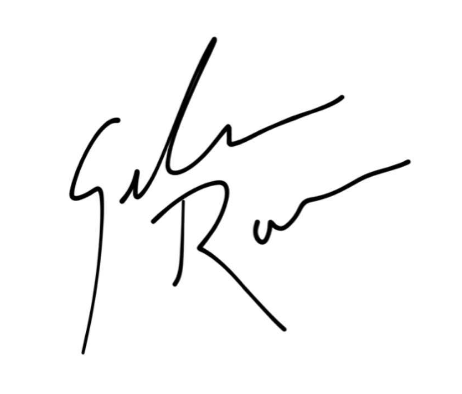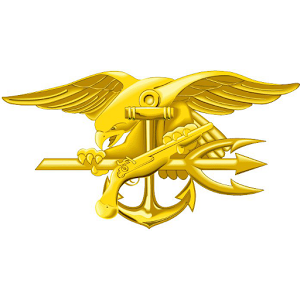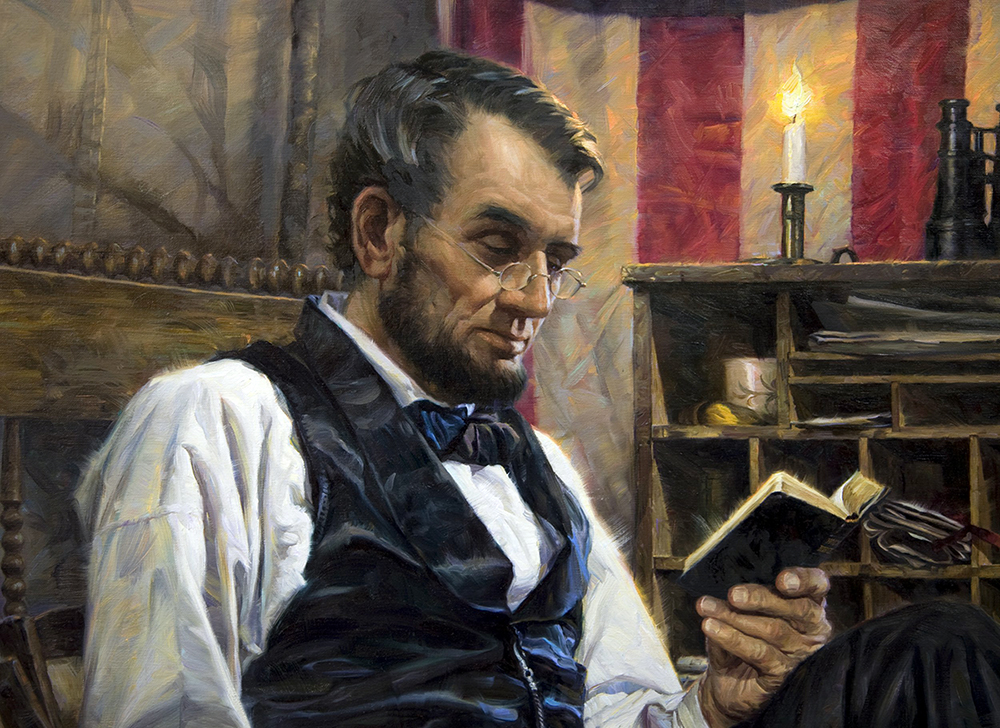I
There was, once upon a time, a King, who had near his castle an enormous forest, in which wild animals of all sorts lived. One day he dispatched a hunter into those woods to take a deer, but the hunter did not return. “Something went wrong out there,” said the King, and the next day he sent two more hunters out to search for the first, but they did not return either. On the third day, he called all his huntsmen in, and said, “Scour that entire forest, and stay at it until you’ve found all three of them.”
Not a one of those hunters ever returned, and moreover, the pack of dogs that went out with them never came back either.
No one after that dared to enter the forest, and let it be in its deep stillness and solitude. Only now and then an eagle or a hawk flew over it.
This situation went on for years, and then one day a strange hunter appeared who wanted some work to do, and he offered to set foot in the dangerous woods.
The King however refused to consent, saying, “It is not safe in there. I have the feeling that you will end up like the others, and this is the last we’ll see of you.” The hunter replied: “Sire, I’m well aware of the risk, and fear is something I pay no attention to.”
The hunter took his dog with him, and walked into the forest. It wasn’t long before the dog picked up the scent of game and went in pursuit; but he had hardly run three steps before he stood at the edge of a deep pool and could not go farther. A naked arm reached out of the water, grabbed hold of him, and pulled him down.
When the hunter saw that, he went back to the castle, got three men, who came with pails, and they bucketed out the water. When they got down to the ground, they saw a Wild Man lying there, whose body was as brown as rusty iron. His hair hung down from his head over his face and all the way to his knees. They tied him with cords and led him back to the castle.
At the castle there was great astonishment over this Wild Man; and the King had him locked up in an iron cage that he had placed in the courtyard, and he forbade anyone, on pain of death, to open the locked door. He gave the key into the keeping of the Queen. Once that had been done, people could go safely into the forest once more.
The King had an eight-year-old son, who one day was playing in the courtyard, and during that play his golden ball fell down into the cage. The boy ran to the cage and said, “Give me my golden ball.” “Not until you’ve opened the door for me,” the man answered. “Oh no,” said the boy, “I can’t do it, the King won’t let me,” and he ran away. The next day the boy returned and asked for his ball again. The Wild Man said, “If you open the door,” but the boy would not. On the third day, while the King was out hunting, the boy came once again, and said, “Even if I wanted to, I couldn’t open the lock because I don’t have the key.” The Wild Man said, “The key is under your mother’s pillow; you can retrieve it.”
The boy, who really did want his ball back, threw caution to the winds, went into the castle, and got the key. The cage door was not easy to open, and the boy pinched his finger. When the door stood open, the Wild Man walked through it, gave the boy the golden ball, and hurried away.
The boy suddenly felt great fear. He shouted and cried out after him, “Wild Man, if you go away, they will beat me!” The Wild Man wheeled around, lifted the boy onto his shoulders, and walked with brisk steps into the forest.
When the King returned, he noticed the empty cage, and inquired of the Queen how the Wild Man had gotten loose. She knew nothing about it, went to check the key, and found it gone. She called the boy, but got no answer. The King sent a search party out into the fields, but they did not find the boy. It wasn’t difficult to guess what had happened; and great grief and mourning settled on the royal house.
II
When the Wild Man had reached the dark forest once more, he took the boy from his shoulders, put him down on the earth, and said, “You will never see your mother and father again, but I will keep you with me, for you have set me free, and I feel compassion for you. If you do everything as I tell you, all will go well. I have much gold and treasure, more than anyone else in the world.”
The Wild Man prepared a bed of moss for the boy to sleep on, and in the morning took him to a spring. “Do you see this golden spring? It is clear as crystal, and full of light. I want you to sit beside it and make sure that nothing falls into it, because if that happens, it will wrong the spring. I’ll return each evening to see if you’ve obeyed my order.”
The boy sat down at the spring’s edge. Occasionally he glimpsed a golden fish or a gold snake, and he took care to let nothing fall in. But as he sat there, his wounded finger was so painful that, without intending to, he dipped it into the water. He pulled it out instantly, but he saw that the finger had turned to gold, and no matter how much he washed it, the washing did no good.
Iron John came back that evening and said, “Anything happen with the spring today?”
The boy held his finger behind his back to keep Iron John from seeing it, and said, “No, nothing at all.”
“Ah, you’ve dipped your finger in the spring!” said the Wild Man. “We can let it pass this once, but don’t let that happen again.”
Early the next morning, the boy sat again at the spring watching over it. His finger still hurt and after a while, he ran his hand up through his hair. One hair, alas, came loose from his head and fell into the spring. He immediately reached down and pulled it out, but the hair had already turned to gold.
The moment Iron John returned, he knew what had happened, “You’ve let a hair fall into the spring. I’ll allow it this time, but if it happens a third time it will dishonor the spring, and you will not be able to stay with me any longer.”
The third day, as the boy sat by the spring, he was determined, no matter how much his finger hurt him, not to let it move. Time passed slowly, and he began gazing at the reflection of his face in the water. He got the desire to look straight into his own eyes, and in doing this, he leaned over farther and farther. All at once his long hair fell down over his forehead and into the water. He threw his head back but now all his hair, every bit, had turned gold, and it shone as if it were the sun itself. Now the boy was frightened! He took out a kerchief and covered his head so that the Wild Man wouldn’t know what had happened. But when Iron John arrived home, he knew immediately. “Take the kerchief off your head,” he said. The golden hair then came tumbling down over the boy’s shoulders, and the boy had to be silent.
“You can’t stay here any longer because you didn’t make it through the trial. Go out into the world now and there you will learn what poverty is. I see no evil in your heart, however, and I wish you well, so I’ll give you this gift: whenever you are in trouble, come to the edge of the forest and shout, ‘Iron John, Iron John!’ I’ll come to the edge of the forest and help you. My power is great, greater than you believe, and I have gold and silver in abundance.”
III
Then the King’s son left the forest, and walked by beaten and unbeaten paths ever onwards until at length he reached a great city. There he looked for work, but could find none, and he had learnt nothing by which he could help himself. At length, he went to the palace, and asked if they would take him in. The people about court did not at all know what use they could make of him, but they liked him, and told him to stay. At length the cook took him into his service, and said he might carry wood and water, and rake the cinders together.
IV
Once when it happened that no one else was at hand, the cook ordered the boy to carry the food to the royal table, but because the boy did not want his golden hair to be seen, he kept his cap on. Such a thing as that had never happened in the King’s presence, and he said, “When you come to the royal table you must take your cap off.” He answered: “Ah, Lord, I cannot; I have a sore place on my head.” The King called the cook up, scolded him, and demanded how he could have taken such a boy as that into his service; and told him to fire the boy and get him out of the castle.
V
The cook, however, had pity on the youngster and exchanged him for the gardener’s boy.
Now the boy had to set out plants in the garden, and water them, chop with hoe and spade, and let wind and bad weather do what they wished.
Once in summer, when he was working in the garden by himself, it got so hot that he pulled his head covering off, so that the breeze would cool his head. When the sun touched his head, his hair glowed and blazed out so brightly that beams of sunlight went all the way into the bedroom of the King’s daughter, and she leapt up to see what that could be. She spied the boy outside, and called to him, “Boy, bring me a batch of flowers!”
He quickly put his cap back on, picked some wild flowers for her, and tied them in a bunch. As he started up the stairs with them, the gardener met him, and said, “What are you doing bringing the King’s daughter such ordinary flowers? Get moving and pick another bouquet, the best we have and the most beautiful.”
“No, no,” the boy answered, “the wild flowers have stronger fragrance and they will please her more.” When the boy walked into her room, the King’s daughter said, “Take your headthing off; it isn’t proper for you to wear it in my presence.”
He replied, “I don’t dare do that. I have the mange, you know.”
She however grabbed the cap and yanked it off; his golden hair tumbled down around his shoulders, and it was magnificent to look at. He started out the door at a run, but she held him by the arm and gave him a handful of gold coins. He took them and left, but put no stock in them; in fact he brought the coins to the gardener and said, “I’m giving these to your children—they can use them to play with.”
The next day the King’s daughter again called the boy to her and told him to bring her some more wild flowers. When he walked in with them, she reached for his little hat and would have torn it away, but he held on to it with both hands. Once more she gave him a handful of gold coins, but he refused to keep them and gave them to the gardener as playthings for his children.
The third day things went the same way: she couldn’t manage to get his hat off, and he wouldn’t accept the gold coins.
VI
Not long after, the country was swept up in war. The King gathered his forces and was not positive that he could succeed against the enemy, who was powerful and retained a large army. The gardener’s boy said: “I am quite grown now, and I will go to war, if you’ll just give me a horse.” The other men laughed and declared: “When we’ve gone, you go look in the stable—we’ll certainly leave a horse behind for you.”
When they had all gone, the boy went into the barn and led a horse out; it was lame in one leg, and walked hippity, hoppity. He climbed on it and rode to the dark forest.
When he came to its edge, he called three times: “Iron John,” so loud that it echoed through the trees.
In a moment the Wild Man arrived and said, “What is it you want?”
“I want a strong war-horse because I intend to go to the war.”
“You will receive that, and more than you have asked for as well.”
The Wild Man turned then and went back into the woods, and not long afterwards, a stableboy came out of the trees leading a war-horse that blew air through its nostrils and was not easy to hold in. Running along after the horse came a large band of warriors, entirely clothed in iron, with their swords shining in the sun. The boy turned his three-legged nag over to the stableboy, mounted the new horse, and rode out at the head of the soldiers. By the time he neared the battlefield, a large part of the King’s men had already been killed, and not much more was needed to bring them to total defeat.
The boy and his iron band rode there at full speed, galloped on the enemy like a hurricane, and struck down every one that opposed them. The enemy turned to flee, but the boy kept after them and pursued them to the last man. Then, however, instead of returning to the King, the boy took his band a roundabout way back to the forest, and called Iron John out.
“What do you want?” the Wild Man asked.
“You can take your horse and your men back, and give me again the three-legged nag.”
So it all happened as he requested, and he rode the hoppity hop back home.
When the King returned to his castle, his daughter went to him and congratulated him on his victory.
“It wasn’t me,” he said, “who managed that, but a strange knight and his warrior band who arrived to help.”
The daughter asked who this strange knight was, but the King didn’t know, and added: “He galloped off in pursuit of the enemy, and that’s the last I saw of him.” The girl applied to the gardener and inquired about his boy, but he laughed and said, “He is just now arrived home on his three-legged nag. The farm help made fun of him, shouting: ‘Guess who’s here? Moopygoop.’ Then they said, ‘You’ve been under a lilac bush, eh? How was it?’ He said back to them, ‘I fought very well; if I hadn’t been there, who knows what would have happened?’ They all fell over themselves laughing.”
VII
The King said to his daughter: “I’ll arrange a great festival that will last three days, and you will be the one who throws out the golden apple. Perhaps the mysterious knight will appear.”
After the announcement of the festival had been made, the young man rode to the forest’s edge and called for Iron John.
“What do you need?” he asked.
“I want to catch the golden apple the King’s daughter is going to throw.”
“There’s no problem: you virtually have it in your hands right now,” Iron John replied. “I’ll provide you more: red armor for the occasion, and a powerful chestnut horse.”
The young man galloped to the field at the proper time, rode in among the other knights, and no one recognized him. The King’s daughter stepped forward, and she threw a golden apple into the group of men; and he was the man who caught it. However, having caught it, he galloped off and was gone.
When the second day arrived, Iron John had him fitted out with white armor, and provided for him a white horse. This time also the apple fell into his hands; once more he did not pause for even an instant, but galloped off.
That made the King angry, and the King said, “This behavior is not allowed; he is supposed to ride over to me and report his name.”
“If he catches the apple the third time, and gallops off again,” he told his men, “chase him. What’s more, if he refuses to return, give him a blow; use your sword.”
For the third day of the festival, Iron John gave the young man black armor and a black horse. That afternoon the young man caught the apple also. But this time, when he rode away with it, the King’s men galloped after him, and one got close enough to give him a leg wound with the end of his sword. The young man escaped; but his horse made such a powerful leap to do so that the young man’s helmet fell off, and everyone could see that he had golden hair. The King’s men rode home and told the King everything that had happened.
VIII
The King’s daughter the next day inquired to the gardener about his boy. “He’s back at work in the garden. The strange coot went to the festival yesterday, and only got back last night. He showed my children, by the way, three golden apples he had won.”
The King called the young man in, and he appeared with his cap back on his head. The King’s daughter, however, went up to him and pulled it off, and his golden hair fell down over his shoulders; his beauty was so great that everyone was astounded.
The King said, “Are you the knight who appeared each day at the festival with a different color horse, and each day caught the golden apple?”
“I am,” he said, “and the apples are here.” Taking the apples from his pocket, he handed them to the King. “If you need more evidence, you can look at the wound that your men gave me when they were chasing me. What’s more, I am also the knight who helped defeat the enemy.”
“If you can perform feats of that magnitude, you are obviously not a gardener’s boy. Who is your father, may I ask?”
“My father is a notable King, and I have a great deal of gold, as much as I will ever need.”
“It’s clear,” the King said, “that I am in debt to you. Whatever I have in my power that would please you, I will give.”
“Well,” the young man said, “I’d suggest that you give me your daughter as my wife.”
Then the King’s daughter laughed and said, “I like the way he doesn’t beat around the bush; I already knew he was no gardener’s boy from his golden hair.” And so she walked over and kissed him.
The young man’s father and mother were among those invited to the wedding, and they came; they were in great joy because they had given up hope that they would ever see their dear son again.
While all the guests were sitting at the table for the marriage feast, the music broke off all at once, the great doors swung open, and a baronial King entered, accompanied in procession by many attendants.
He walked up to the young groom and embraced him. The guest said: “I am Iron John, who through an enchantment became turned into a Wild Man. You have freed me from that enchantment. All the treasure that I own will from now on belong to you.”
Translation by Robert Bly of the story by Jacob and Wilhelm Grimm in Grimms Marchen (Zurich: Manesse Verlag, 1946). Parts of this translation may be found in the chapters noted in parentheses.


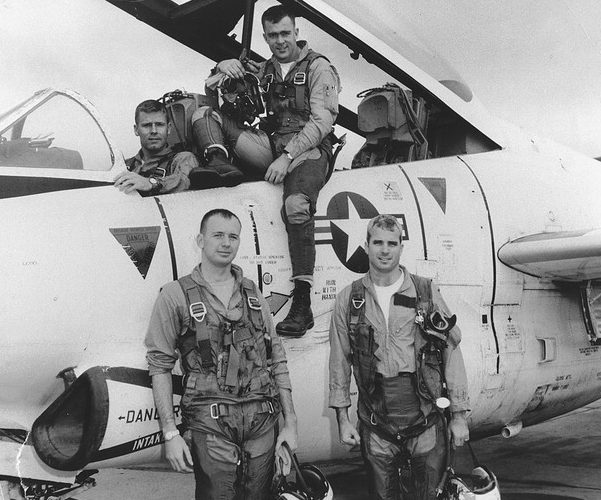 “Ironically for someone who had so long asserted his own individuality as his first and best defense against insults of any kind, I discovered that faith in myself proved to be the least formidable strength I possessed when confronting alone organized inhumanity on a greater scale than I had conceived possible. Faith in myself was important, and remains important to my self-esteem. But I discovered in prison that faith in myself alone, separate from other, more important allegiances, was ultimately no match for the cruelty that human beings could devise when they were entirely unencumbered by respect for the God given dignity of man. This is the lesson I learned in prison. It is, perhaps, the most important lesson I have ever learned.” ― John McCain, Faith of My Fathers
“Ironically for someone who had so long asserted his own individuality as his first and best defense against insults of any kind, I discovered that faith in myself proved to be the least formidable strength I possessed when confronting alone organized inhumanity on a greater scale than I had conceived possible. Faith in myself was important, and remains important to my self-esteem. But I discovered in prison that faith in myself alone, separate from other, more important allegiances, was ultimately no match for the cruelty that human beings could devise when they were entirely unencumbered by respect for the God given dignity of man. This is the lesson I learned in prison. It is, perhaps, the most important lesson I have ever learned.” ― John McCain, Faith of My Fathers